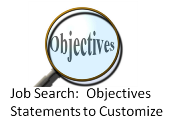Active Listening: A person’s willingness and ability to hear and understand, focusing entirely on what is being said and confirming accurate comprehension of the message 
Application of Legal Skills: Basic understanding of legal processes and constraints as they pertain to a position or responsibility
Business Case Development: Develop a compelling and credible business case for all types of projects, including identification of alternative solutions and a financial cost benefit analysis
Business Etiquette: Professionalism in both communications and actions
Change Management: Assess readiness for change and develop a change management process to include communication strategy, accountability and measures
Oral Communication: Verbally articulate ideas clearly and effectively through both formal and informal communication
Written Communication: Ability to write clearly and effectively in a standard, professional business language using appropriate methods
Computer Skills: Proficiency with common computer applications such as Microsoft Office suites
Conflict Management: Ability to give and receive feedback or objections (internally and externally) in a professional and appropriate manner, so as not to incite conflict among parties
Creativity/Innovation: Developing new ideas that impact the organization’s results and make the ideas a reality
Critical/Analytical Thinking: Explore alternatives and review impacts of pros and cons to solve a problem, utilizing tools like the 80/20 Pareto Principle
External Customer Service: Listen to and understand customer needs, establish and exceed expectations, and provide for ongoing feedback
Internal Customer Service: Listen to and understand the needs of your colleagues and partners in other internal organizations, establish and exceed expectations, and provide for ongoing feedback
Data Analysis: Understand how to transform data into information that leads to decisions and actions
Decision Making: Develop and evaluate alternatives, make informed decision utilizing fact-based management, and being decisive
Driving Stakeholder Value: Identifying the key stakeholders and their needs
Global Business Perspective: Understand how to do business abroad, how to manage the complexities of international commerce, and be aware of international cultures
Global and Cultural Diversity Management: Understand and have the ability to bridge the gap between global, cultural and personal differences in the workforce, respect the differences of your coworkers, understand that concessions will need to be made to work in global teams, and be willing to explore new ideas regardless of where they come from
Leadership: Set direction, lead by example, develop a strong culture, execute strategy and plan – garnering employees’ involvement with, commitment to, and satisfaction with work and the company
Lean Thinking/Process Improvement: Identify, analyze and improve existing processes within an organization to meet new goals and objectives, reduce waste, shorten cycle times, automate manual effort, build in prevention and reduce the number of steps
Meeting Management and Facilitation: Help others to maximize their contribution in groups and teams by creating a supportive and outcomefocused environment, effectively run group meetings to reach a decision, conclusion or solve a problem
Mentoring: Ability to guide and educate others to elevate performance and encourage personal improvement, professional improvement or both
Networking/Relationship Building – Internal and External: Establishing rapport with internal and external parties in an effort to achieve congruent goals and develop long-term partnerships and trusted advisor relationships
People Management/Supervisory: Motivate, develop and reward individuals and teams, while providing constructive and candid feedback
Performance Management Measures: Establish key performance drivers, balance of measures to drive the right behavior and results – including both lead and lag indicators – and provide for ongoing monitoring
Presentation Skills: Ability to develop and deliver presentations for both internal and external audiences that are confident, engaging, clear, concise, visually appealing and encourage participation
Prioritization and Focus: Ability to identify and focus on high-impact projects and maintain focus on the vital things that must exceed expectations versus simply being met
Project Management and Execution: Planning, organizing and managing resources to bring about the successful execution of specific project goals and objectives on time and on budget
Risk Management: Analyzing exposure to risk and determining how to best handle such exposure and mitigate damages
Selling Ideas: Ability to present alternatives and recommendations and achieve approval to implement an idea
Strategic Planning/Strategic Thinking: Ability to ask effective questions to stimulate thought and creative insights in order to determine long-term goals and then identify the best approach for achieving those goals
Teamwork/Collaboration: Ability to work with teammates or colleagues through differences in opinion, personality and culture to achieve common goals
Time Management: Effectively manage time, set priorities and follow-up
Versatilist/Multifunctionalist: Having a wide range of skills, competencies and experiences to assist in fueling business value
Working Within a System/Process/Industry Tools: Knowledge of industry specific tools, processes, policies and regulations, allowing one to work inside set standards with detail and consistency
Chosen excerpts by Job Market Monitor. Read the whole story at skill gaps – University of Missouri-St. Louis



Discussion
Trackbacks/Pingbacks
Pingback: Skills – Not only are there difficulties in defining skill, there is no agreed classification of the types of skills observed | Job Market Monitor - March 15, 2016